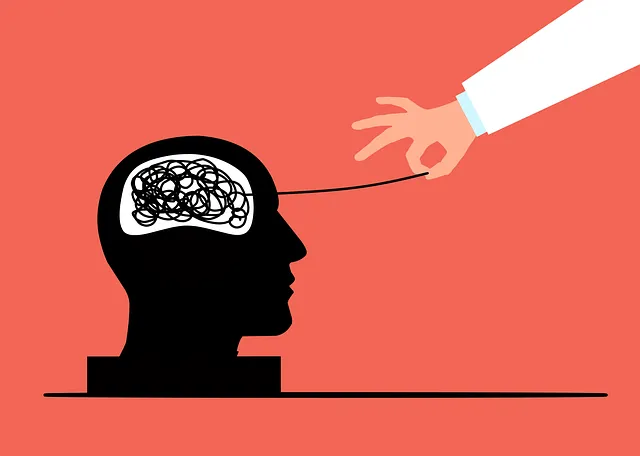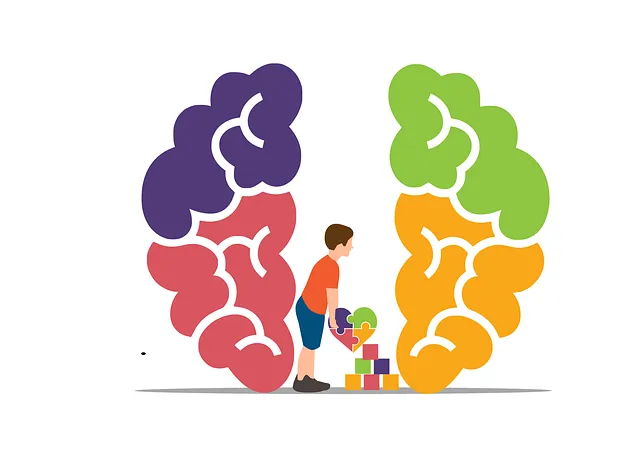The Englewood Kaiser Permanente behavioral health number prioritizes cultural diversity in mental healthcare, recognizing that each patient brings a unique cultural tapestry. Cultural sensitivity, not an option but a cornerstone, ensures patients feel understood and respected, strengthening the patient-provider bond. This approach fosters inclusive environments, enhances communication, and leads to improved outcomes through tailored interventions like mindfulness meditation. By addressing cultural stressors, integrating traditional healing practices, and providing personalized coaching, the Englewood Kaiser Permanente behavioral health number offers effective, equitable care, evidenced by its successful case studies and industry leadership.
Cultural sensitivity is a cornerstone of effective mental healthcare, ensuring equitable treatment for all. In a diverse society, understanding cultural nuances is vital to address unique patient needs. This article explores the significance of cultural sensitivity in mental healthcare, highlighting its impact on positive patient outcomes. We delve into strategies for engaging with patients from various backgrounds, navigating challenges faced by practitioners, and offer real-world insights through case studies, including the successful practices at Englewood Kaiser Permanente Behavioral Health, a leading provider serving diverse communities.
- Understanding Cultural Diversity in Mental Healthcare
- The Impact of Cultural Sensitivity on Patient Outcomes
- Engaging with Patients from Different Backgrounds
- Challenges and Strategies for Culturally Competent Practice
- Case Studies: Successful Cultural Sensitivity in Action at Englewood Kaiser Permanente Behavioral Health
Understanding Cultural Diversity in Mental Healthcare

In the diverse communities served by Englewood Kaiser Permanente behavioral health number, understanding cultural diversity is paramount in mental healthcare practice. It involves recognizing and appreciating the unique belief systems, values, and traditions that shape individuals’ experiences with mental wellness. Every patient brings a rich tapestry of experiences and perspectives to their interaction with healthcare providers, which can significantly influence how they perceive and engage with mental health services.
Cultural sensitivity is not merely an addition but a cornerstone for effective treatment. It requires mental health professionals to be attuned to the nuances of different cultural contexts, fostering environments where patients feel understood and respected. This approach is crucial in building resilience, as it strengthens the patient-provider bond, enhances communication, and ultimately contributes to the success of mental wellness interventions, such as those offered through the Mental Wellness Podcast Series Production.
The Impact of Cultural Sensitivity on Patient Outcomes

Cultural sensitivity plays a pivotal role in shaping patient outcomes within mental healthcare settings, particularly at institutions like Englewood Kaiser Permanente behavioral health number. Recognizing and respecting diverse cultural backgrounds, beliefs, and values can significantly enhance the effectiveness of treatment plans. When mental health professionals are attuned to these differences, they can create an inclusive environment that fosters trust and encourages open communication, ultimately leading to improved patient engagement and satisfaction.
For instance, a culturally sensitive approach might involve tailoring therapy sessions to incorporate traditional healing practices or addressing specific cultural stressors related to mental wellness. The implementation of initiatives such as Stress Management Workshops Organization’s programs or the integration of Mind Over Matter Principles can further support patients in navigating their unique challenges. Moreover, Mental Wellness Coaching Programs Development tailored to diverse populations can empower individuals to take charge of their mental health and well-being while respecting their cultural identities.
Engaging with Patients from Different Backgrounds

Engaging with patients from diverse cultural backgrounds is an essential aspect of mental healthcare practice, as it ensures inclusivity and equality in treatment. At Englewood Kaiser Permanente behavioral health number, we recognize that cultural sensitivity is key to fostering trust and understanding between providers and patients. This involves actively listening to and respecting each individual’s unique experiences, beliefs, and values, which can significantly impact their approach to seeking help and coping mechanisms.
By incorporating cultural awareness, mental health professionals can offer tailored support for specific communities, promoting the development of coping skills and resilience-building techniques like mindfulness meditation. This personalized care approach not only enhances treatment outcomes but also strengthens the patient’s connection with their healthcare provider, encouraging open communication and a safe space to explore sensitive topics.
Challenges and Strategies for Culturally Competent Practice

Cultural sensitivity is paramount in mental healthcare to ensure effective treatment and foster trust between patients and providers. One of the primary challenges is overcoming communication barriers stemming from language differences and cultural nuances. At institutions like Englewood Kaiser Permanente behavioral health, addressing this issue involves employing multilingual staff and utilizing interpretation services to facilitate clear communication.
To build culturally competent practices, empathy-building strategies are essential. Healthcare professionals should actively listen to patients’ stories, understand their cultural contexts, and respect their values and beliefs. This approach not only strengthens the therapeutic alliance but also enables mental health specialists to tailor interventions that promote emotional well-being. Additionally, confidence-boosting techniques tailored to diverse populations can help patients feel more at ease sharing personal experiences, which is crucial for accurate diagnosis and treatment planning.
Case Studies: Successful Cultural Sensitivity in Action at Englewood Kaiser Permanente Behavioral Health

Englewood Kaiser Permanente Behavioral Health stands as a beacon of excellence in cultural sensitivity within mental healthcare practices. Their approach involves meticulously tailored interventions that respect and embrace diverse patient backgrounds, fostering inclusive environments. Through case studies, it’s evident that this commitment translates into improved outcomes for minority patients, who often face unique challenges navigating systems that may not always understand or accommodate their cultural contexts.
The team at Englewood Kaiser Permanente leverages Emotional Intelligence to build strong therapeutic alliances, enhancing the confidence-boosting aspect of treatment. This emotional connection is crucial in mitigating potential barriers and facilitating open communication. Furthermore, their comprehensive risk assessment for mental health professionals ensures that practitioners are equipped with the cultural sensitivity training necessary to identify and address subtle nuances in patient presentations, thereby providing more accurate diagnoses and effective care plans.
Cultural sensitivity is a cornerstone of effective mental healthcare, as evidenced by the success stories from Englewood Kaiser Permanente behavioral health, where an inclusive approach significantly improves patient outcomes. By understanding cultural diversity and implementing culturally competent practices, healthcare providers can create safe spaces that cater to the unique needs of every individual, regardless of their background. This not only enhances treatment adherence but also fosters better relationships between patients and caregivers, ultimately revolutionizing mental healthcare for the better.






